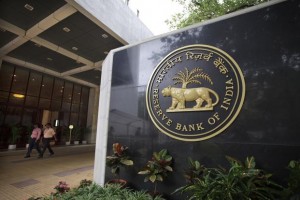Reserve Bank of India (RBI) has relaxed the overseas borrowings or external commercial borrowings (ECB) norms for Indian firms and allowed infrastructure firms to borrow upto five years. The RBI said that it has reviewed the existing ECB guidelines in consultation with the government after “taking into account prevailing external funding sources, particularly for long-term lending and the critical needs of infrastructure sector of the country”. As per the new framework, infrastructure firms, non-banking finance companies -Infrastructure Finance Companies (NBFC-IFCs), NBFCs-Asset Finance Companies (NBFC-AFCs), holding companies and core investment companies (CICs) will also be eligible to raise ECB for minimum average maturity period of five years, subject to 100 per cent hedging, the Reserve Bank said in a release.
‘Exploration, Mining and Refinery’ sectors which are not included in the list of infrastructure sector but were eligible to take ECB will be deemed as in the infrastructure sector, and can access ECB as applicable to infrastructure sector, RBI said. “Companies in infrastructure sector shall utilise the ECB proceeds raised under Track I for the end uses permitted for this Track. NBFCs-IFCs and NBFCs-AFCs will, however, be allowed to raise ECB only for financing infrastructure,” it added.
According to the new norms, holding Companies and CICs shall use ECB proceeds only for on-lending to infrastructure Special Purpose Vehicles (SPVs). Track I refers to Medium term foreign currency denominated ECB with Minimum Average Maturity of 3/5 years. The individual limit of borrowing under the automatic route for these companies is $750 million. Only those NBFCs which are coming under the regulatory purview of the Reserve Bank are permitted to raise ECB.
The move would help increase availability of funding for infrastructure projects, said SREI Infra Vice Chairman and ASSOCHAM President Sunil Kanoria. RBIs policy action will make it easier for infrastructure companies to raise funds as well as refinance costlier debt, as loans with shorter maturity are cheaper than long-term borrowings, bankers said. Welcoming the experts say that this is a remarkable step as it opens up a diverse set of investors for such companies and they can borrow now at a competitive rate than the domestic rates. However, the requirement of 100% hedging may prevent many borrowers to raise funds. As a matter of fact, the new rule demanding hedging is relevant as most of the infrastructure companies do not hedge against currency risk. 100% hedging will escalate costs steeply as hedging costs are high in international market.
Author Profile
- India Writes Network (www.indiawrites.org) is an emerging think tank and a media-publishing company focused on international affairs & the India Story. Centre for Global India Insights is the research arm of India Writes Network. To subscribe to India and the World, write to editor@indiawrites.org. A venture of TGII Media Private Limited, a leading media, publishing and consultancy company, IWN has carved a niche for balanced and exhaustive reporting and analysis of international affairs. Eminent personalities, politicians, diplomats, authors, strategy gurus and news-makers have contributed to India Writes Network, as also “India and the World,” a magazine focused on global affairs.
Latest entries
 DiplomacyJanuary 5, 2026India walks diplomatic tightrope over US operation in Venezuela
DiplomacyJanuary 5, 2026India walks diplomatic tightrope over US operation in Venezuela India and the WorldNovember 26, 2025G20@20: Africa’s Moment – The Once and Future World Order
India and the WorldNovember 26, 2025G20@20: Africa’s Moment – The Once and Future World Order DiplomacyOctober 4, 2025UNGA Resolution 2758 Must Not Be Distorted, One-China Principle Brooks No Challenge
DiplomacyOctober 4, 2025UNGA Resolution 2758 Must Not Be Distorted, One-China Principle Brooks No Challenge India and the WorldJuly 26, 2025MPs, diplomats laud Operation Sindoor, call for national unity to combat Pakistan-sponsored terror
India and the WorldJuly 26, 2025MPs, diplomats laud Operation Sindoor, call for national unity to combat Pakistan-sponsored terror








